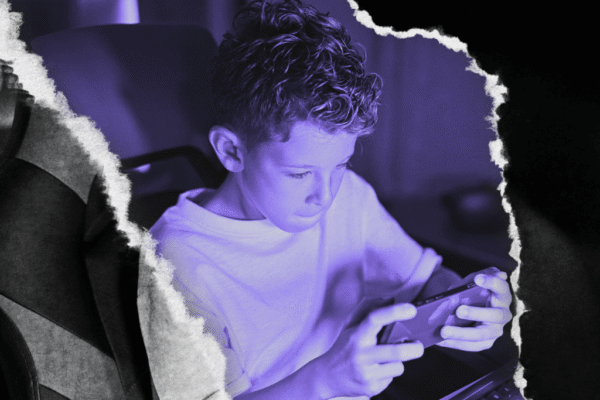Updated – Originally published September 25, 2020
If you’ve ever walked past your teen’s room late at night and heard TikTok audio or the glow of a charging phone, you’re not alone. More and more young people are staying up late—not because they can’t sleep, but because they won’t. The behavior even has a name: Revenge Bedtime Procrastination.
It sounds dramatic, but it’s surprisingly common. It’s when someone delays going to sleep—scrolling, texting, or binge-watching—because it’s the only time they feel like the day finally belongs to them. After a long stretch of school, homework, practice, and chores, bedtime becomes their only “me time.” They know they’ll regret it in the morning, but they stay up anyway.
It’s a quiet protest against overscheduled days and vanishing free time.
What Is Revenge Bedtime Procrastination?
The term “revenge bedtime procrastination” originated in China and went viral around the world. It describes the tendency to sacrifice sleep in order to reclaim lost personal time. Psychologists call it “self-defeating behavior that feels rewarding in the moment.” Teens (and adults) stay up late for a sense of control—scrolling through social media, watching shows, or texting friends long after they should be asleep.
This small act of defiance is often less about the screen and more about the schedule. When every waking hour is dictated by parents, teachers, or coaches, that quiet nighttime slot becomes sacred. For overscheduled kids, bedtime procrastination can feel like freedom.
Kids Today Have Less Free Time Than Ever
It’s not just a feeling—data backs it up. Over the past few decades, children’s free time has been shrinking.
In the early 1980s, the average American child had nearly 40% of their day free after accounting for school, sleep, meals, and chores. By the late 1990s, that number had dropped to just 25%. And it continued to decline. Today’s kids are even more structured—more homework, more activities, and more screen-based obligations like online classes and group chats.
Add in long school hours and extracurriculars, and it’s easy to see why many teens feel like they never get to rest or play. Overscheduled routines can erode the natural balance of leisure time that kids need to recharge emotionally. Without that break, it’s no wonder they seek downtime after dark.
Why Teens Stay Up When They’re Exhausted
At first glance, staying up when you’re tired seems irrational. But for many teens, delaying sleep is a way of reclaiming agency.
After an entire day spent following rules and routines, bedtime feels like the only decision they control. Maybe they just want to relax, text friends, or play a few rounds of a favorite game. The problem is that short bursts of leisure can quickly turn into long stretches of sleep procrastination. One more video becomes ten; one more text thread turns into an hour.
It’s a way to cope—but it comes with a cost. In trying to steal back time at night, kids end up sacrificing sleep, which makes the next day even harder. It’s an emotional feedback loop that feels good in the moment but compounds stress and fatigue over time.
The Cost of Sleep Deprivation
Sleep isn’t just rest—it’s fuel for growth, learning, and emotional regulation. When teens lose sleep night after night, the effects ripple through their entire lives.
Academically, lack of sleep dulls focus, memory, and motivation. Students who stay up late often perform worse in class, forget assignments, or struggle to concentrate. Emotionally, sleep-deprived kids are more irritable, anxious, and prone to mood swings. Even small frustrations can feel overwhelming when their brains haven’t fully recharged.
Physically, chronic sleep loss weakens the immune system and disrupts metabolism. Research links inadequate rest to higher risks of illness, heart strain, and obesity. For teens—whose bodies and brains are still developing—the long-term effects can be serious.
And yet, many of them still see bedtime as optional. That’s where screens make everything harder.
How Screens Make Sleep Procrastination Worse
Even if your teen is determined to fall asleep, their devices may have other plans.
Electronic devices—especially phones and tablets—emit blue light that tells the brain, “It’s still daytime.” That light delays the release of melatonin, the hormone that helps us fall asleep, effectively shifting the body’s circadian rhythm later. Teens who scroll in bed are essentially teaching their brains to stay awake longer.
Then there’s the content itself. Social media notifications, fast-paced videos, or even group chats keep the mind alert long after the body is ready to rest. Research shows that just having a phone nearby can interfere with sleep quality, even if it isn’t being used. The constant temptation of “just checking one more thing” can easily turn into hours of lost rest.
Studies have found that about 60% of teens use screens within an hour of bedtime, and nearly three-quarters keep a device in their bedroom. The result: disrupted sleep patterns, shorter rest, and more groggy mornings.
If this sounds familiar, you might want to read our Gabb articles on phones in bedrooms and sleep quality for practical solutions and research-backed strategies.
Breaking the Cycle of Late Nights
Revenge bedtime procrastination doesn’t come from laziness—it comes from imbalance. The solution isn’t to punish kids for staying up late; it’s to help them find healthy ways to unwind before bedtime.
Here are a few ways parents can help break the cycle:
1. Reclaim Free Time During the Day
If every hour of your teen’s schedule is filled, something’s got to give—and it shouldn’t be sleep. Consider scaling back activities or building in daily “no-obligation” blocks. Unstructured leisure time during daylight hours helps kids relax before they reach exhaustion.
2. Set a Realistic Bedtime Routine
Routines anchor the body’s sleep-wake cycle. Encourage a consistent bedtime, even on weekends, to strengthen healthy sleep habits. A regular rhythm signals to the brain that it’s time to wind down.
3. Remove Devices from Bedrooms
Phones, tablets, and gaming consoles should charge outside the bedroom. The less accessible they are, the less likely teens are to fall into the night owl trap. Device curfews—say, all screens off by 9:30 p.m.—can make a huge difference.
Gabb Phones and Watches make this easier by design—no social media, no web browser, and customizable focus times for screen-free rest.
4. Replace Screens with Calming Activities
Swap the late-night scroll for something soothing: reading a paper book, journaling, listening to music, or even stretching. Encourage activities that help teens decompress without stimulation from electronic devices.
5. Model Healthy Sleep Yourself
Kids notice when we say one thing and do another. Creating a household bedtime routine—dim lights, quiet activities, no phones—shows that rest isn’t just a rule, it’s a value.
Helping Teens Find Balance
At its core, revenge bedtime procrastination is a symptom of imbalance: too much structure, too little rest, and not enough space to just be. When kids don’t get downtime, they’ll take it whenever they can—even if it costs them sleep.By helping teens protect their evenings from overcommitment and screens, parents can guide them toward better rest and healthier independence. That means giving them permission to have personal time before bedtime—time to breathe, play, and feel in control of their day.
What about you—have you noticed bedtime procrastination creeping into your home? Maybe your teen (or you!) struggle to shut down at night. We’d love to hear how your family is finding balance. Share your thoughts and experiences in the comments below.









Success!
Your comment has been submitted for review! We will notify you when it has been approved and posted!
Thank you!